|
|
| |
| Padma Perfumery Works Replenish your senses! |
| Rose Incense |
White Musk Incense |
Al Oudh Incense |
Sheik Al Arab Blue |
Jasmine Incense |
|
|
|
|
|
 |
 |
 |
 |
 |
|
|
|
Saffron

More often than not, you will come across the spice saffron in the spice aisle of your neighborhood supermarket. Among those jarsand bottles brimming with common spices such as cinnamon, cardamom, cloves, cumin and cilantro, there would be jars filled with carefully wrapped transparent envelopes. Inside these envelopes, you will find red-orange threads or powder of saffron - something that most of us can afford to buy in pinchfuls and not handfuls, much unlike the other traditional and less expensive spices. So valuable is the spice that just a pinch of it commands quite a hefty price in the market, though every pinch is truly worth the pay. Want to find out more about saffron? Read on!
Botanical Information
The Plant
The botanical name of saffron plant is saffron crocus/crocus sativus, which is a specie belonging to the family Iridaceae. Indigenous to Southwest Asia, these plants are otherwise cultivated only in a very few regions of the world. The spice saffron is derived from the dried stigma of the flowers of these plants. Almost 70,000 saffron blooms are used in yielding just a pound of this culinary herb – one of the many reasons why saffron is considered such a valued commodity.
The Spice
Saffron as a spice is red-orange in color and has a thread like appearance. These threads emanate a characteristic hay like fragrance due to the presence of chemicals such as picrocrocin and safranal. Saffron also contains the carotenoid dye, crocin, which is what lends the rich golden-yellow hue to dishes and textiles that are prepared using saffron as an ingredient.
- Botanical Classification
- Kingdom: Plantae
- (unranked): Angiosperms
- (unranked): Monocots
- Order: Asparagales
- Family: Iridaceae
- Subfamily: Crocoideae
- Genus: Crocus
- Species: C. sativus
- Binomial name: Crocus sativus.
Culinary Uses Of Saffron
As it has an intense coloring nature and a very pungent flavor and aroma, the spice saffron is used, but only sparingly in coloring and flavoring prepared food items. A pinch of saffron is what it takes to impart the desired flavor and color to dishes such as seafood platters, dessert recipes, rice dishes, beverages, etc.
Benefits Of Saffron
- Presence of essential minerals like thiamin and riboflavin gives saffron spice antispasmodic, diaphoretic, carminative, and sedative properties. Thus, intake of saffron in small amounts (a pinch of the spice with a glass of milk) boosts the blood
 circulatory system and also promotes a healthy heart. circulatory system and also promotes a healthy heart.
- Saffron spice has also been found to be an excellent mood booster. Eating food flavored with saffron eases the mind and is known to control temperamental swings.
- Saffron helps in controlling bladder, kidney and liver disorders. It is additionally recommended as an antidote for managing diabetes, arthritis, asthma, fever, depression, premenstrual syndrome, etc.
- The spice is also used to relieve certain side-effects of chemotherapy and cure disorders of brain associated with alcohol abuse.
- Commercially, the spice is used in the manufacture of perfumery products, especially in countries like China and India.
|
|
|


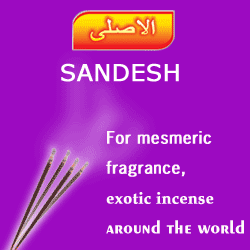

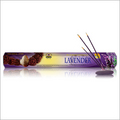
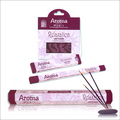
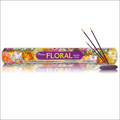
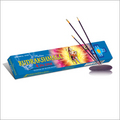
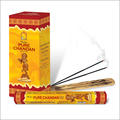

 circulatory system and also promotes a healthy heart.
circulatory system and also promotes a healthy heart. 